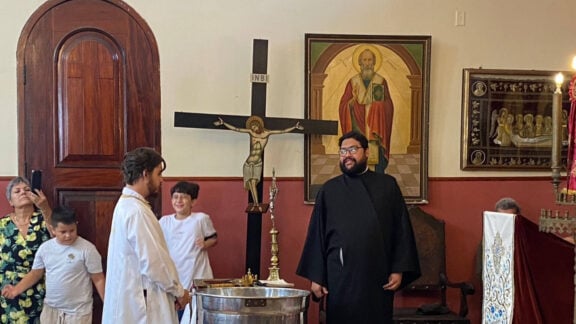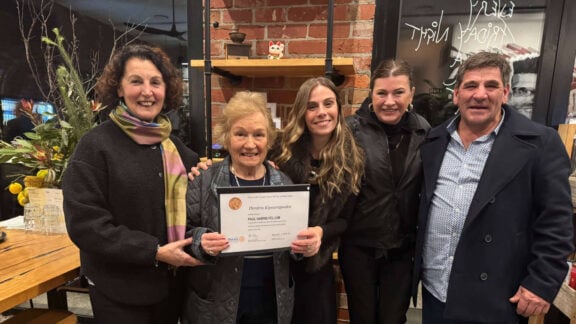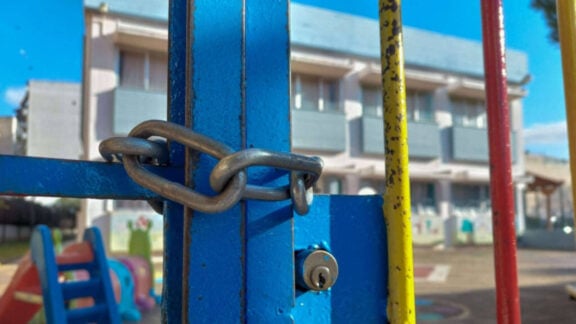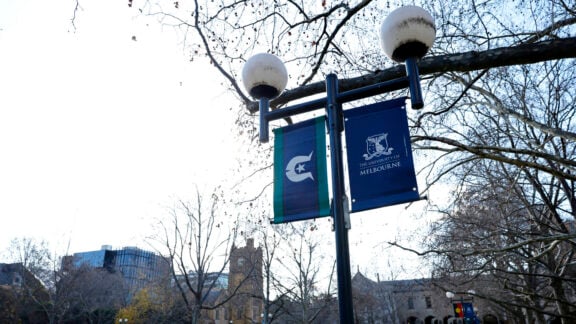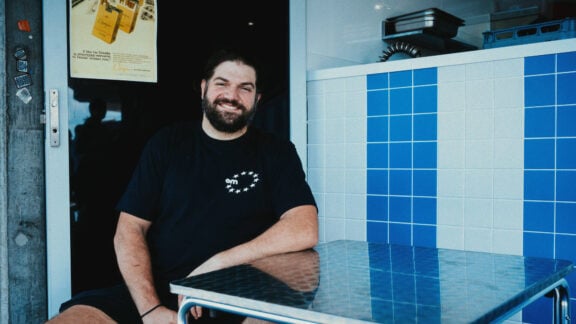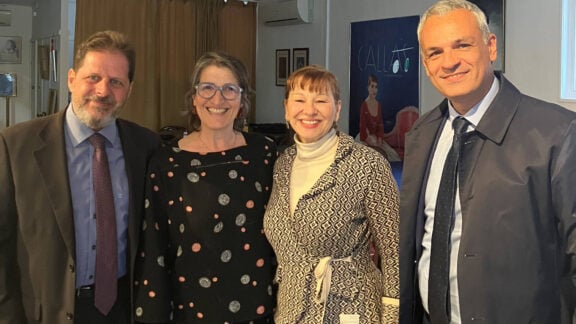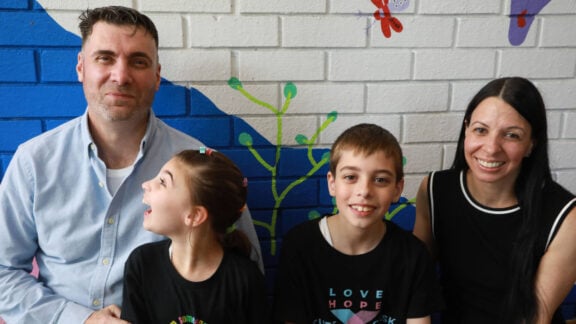As a young tourist travelling through Greece in the late ’90s, what struck me most was the wider social life and nightlife that older Greeks enjoy.
I am happy that I get old here, my old years are the happiest I have ever been
In contrast, life for Melbourne’s older Greeks revolved around work, family, church and the odd community event. They travelled to the other side of the world to begin life in a country where they did not speak the language. Many had little education. All they had was a strong sense of youthful adventure and courage.
Migration to Australia in post-war years played a major role in the development of Australia’s expanding industries. According to the 2011 Submission to the Inquiry into Opportunities for Participation of Victorian Seniors by the Australian Greek Welfare Society (AGWS), 75 per cent of the Greek immigrants that arrived in Australia between 1947 and 1971 were unskilled.
However, despite their limitations they achieved a lot. They were energetic pioneers, organising themselves to establish churches, language schools, businesses, restaurants, newspapers and welfare agencies.
But this industrious generation has now aged. Last year, Fronditha Care, the Australian Greek Society for The Care of the Elderly, published the results of its research into Victoria’s ageing Greek population in a report called ‘Retirement Aged Greeks in Victoria’. Using data from the 2011 census, it found, there were 49,992 Greek-born people living in Victoria, roughly 50 per cent of the Australian total, with approximately 29,000 over the age of 65. The median age for Greek-born people in Victoria is 67 years old, making them older than the broader Victorian population, which has a median age of 42.
The report also found that 60 per cent of Greek-born Victorians earns $200-$599 a week, making them poorer than other Victorians who earn a median of $800 per week.
As they age in Victoria, looking back on their lives, how do they feel about migrating to Australia?
Angelos Kizilos arrived in Melbourne in 1948 aged 16, sent by his parents against his will to escape the civil war. He came from a small village where his family ran a successful farm.
After a series of jobs, he and two friends would buy the Le Jardin restaurant in Melbourne’s prestigious Collins Street and renamed it The Bacchus.
“Can you imagine, three Greek country boys buying a restaurant, the location was the cream of Melbourne,” he says, laughing. It was sold in the ’80s. Married with one child, he says he would happily return to Greece but would miss his daughter. Good English, books and friends stop him feeling lonely.
Kizilos says the absence of a market square in Melbourne’s suburbs comparable to the ones in Greece, where locals gather and chat, probably contributes to the loneliness he thinks many older Greeks feel. He also blames their unwillingness to assimilate with the wider Australian culture.
“They’ve been here 30, 40, 60 years and they don’t know anything but their wives and the factory. They haven’t been anywhere. There is a culture here. There are cinemas and bookshops. They stay in Australia but they don’t live here.”
Part of this could be attributed to poor or non-existent English language skills. The Fronditha report found 35 per cent of elderly Greeks rated their English as poor or non-existent. Work commitments stopped them from formally learning English. Poor language skills inhibit older Greeks from accessing local community services. Old age can be isolating and lonely.
It’s Thursday morning at the Glengala Community Centre in Sunshine. I’m here for a Planned Activity Group (PAG), one of ten social support groups organised by the AGWS for elderly Greeks, at various locations around Melbourne.
Supervisor Harry Liapsis and his staff are warm towards the clients, who are making coasters. The role the PAG can play on the emotional wellbeing of elderly Greeks, some of whom may go days without speaking to anyone, cannot be underestimated. They spend the morning creating art, eat a Greek lunch of beftekia and briami, and play bingo in the afternoon before concluding with an afternoon tea.
Widower Stelios Panagiotou, aged 87, sits with his back to a window facing the St Andrews Orthodox Church outside. Ironically, he helped raise the money to build the church and was the first president of its committee. The former milk bar owner now lives with his son’s family.
![]()
Katerina Tiropanis arrived with her husband in Sydney 57 years ago, when she was 23. He died when she was 40. Heartbroken, she stayed single. She now shares a house with her two grown children in Melbourne.
“I’ve been unlucky in life, but as a widow life would have been harder in Greece, people in the village would talk about me.”
Katerina and Stelios are lucky. Evlambia, in her 80s, arrived in 1955. The widowed mother of three (one child died) lives alone. Her weekly PAG sessions are sometimes her only contact with other people.
“A week can go past, and I won’t have heard from my kids. I feel scared at night on my own. I worry that I will die and no one will know for days. I think it would be better in Greece,” she says.
A close connection to their kids and grandchildren makes it easier for the Greek elderly to cope with isolation and loneliness.
Jason (not his real name), whose mother is a PAG client, says in Greece, people talk to their neighbours everyday. Australians may not even know their neighbours.
“The PAG helps the old folks who are missing the village mentality and daily contact with others. They recreate that sense of village.”
Jason and his wife have been looking after his widowed mother for two years. She had retired to Greece but Jason brought her back to Australia, concerned for her poor health and Greece’s inadequate public aged care. With her own home and friends in the village, adjustment to Melbourne life has been difficult.
“She was like an unruly child. As we got on top of her depression and her nutrition, it got better. She may not be able to live with us forever but it’s worth putting your parent on a good path.”
Niki Petropoulou, 87, started living in Fronditha Care St Albans following a fall in her home, which left her unable to walk unaided. She’s been in Australia 60 years. She’s just returned from spending the weekend with her son for Easter.
The day I attend the PAG, a small group of elderly people are seated in a circle to the right of the entrance. They are waiting to be led to lunch. These people appear frailer than the PAG group. Some have dementia, others are fine mentally but like Niki, incapacitated.
With her family, a job, and voluntary work for the ladies’ auxiliary at a local church, Nicki has stayed busy and happy in Australia. Her only regret is not being in Greece when her mother died.
“There was nothing in Greece for me. I miss nothing. My sisters hardly have a kitchen or a bathroom.”
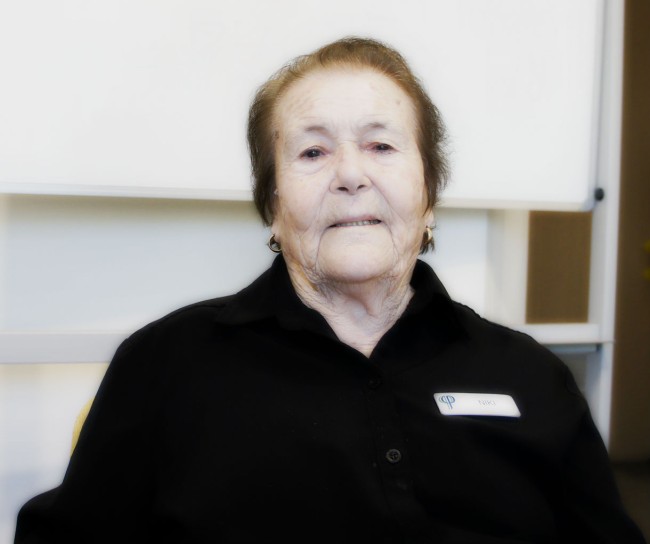
For many Greeks, ending up in a residential aged care facility is contrary to the cultural norm of looking after your parents in your home. But Niki doesn’t mind.
“I’m very, very happy. Nobody is sad to be here. I see my kids often. My life at home would be lonely and hard if I was still living there.”
Actor Antonios Baxevanidis, married with one son, says: “If I have to go to an old people’s home let it be. I am not planning to be a burden to my family.”
An artist, he is different to the other people I’ve spoken too. His family were financially comfortable and supported his dreams of becoming an actor. He arrived in Melbourne in 1968.
“There was a lot of political unrest. Greece was in tatters. I had dreams to get somewhere. In Greece you had to know someone to get a job. I had no way to do that.”
Being completely alone in a foreign country made the first 15 years in Australia extremely difficult. He missed his mother, who he promised he would return after two years. “I’ll never see you again. You’ll never come back,” she said, crying.
He would return to Greece to see her twice, his only regret, but he has found artistic expression in Australia he never would have in Greece. He’s performed in 85 projects, including television, film and theatre. He still acts when he can.
“I am happy that I get old here, my old years are the happiest I have ever been.”


